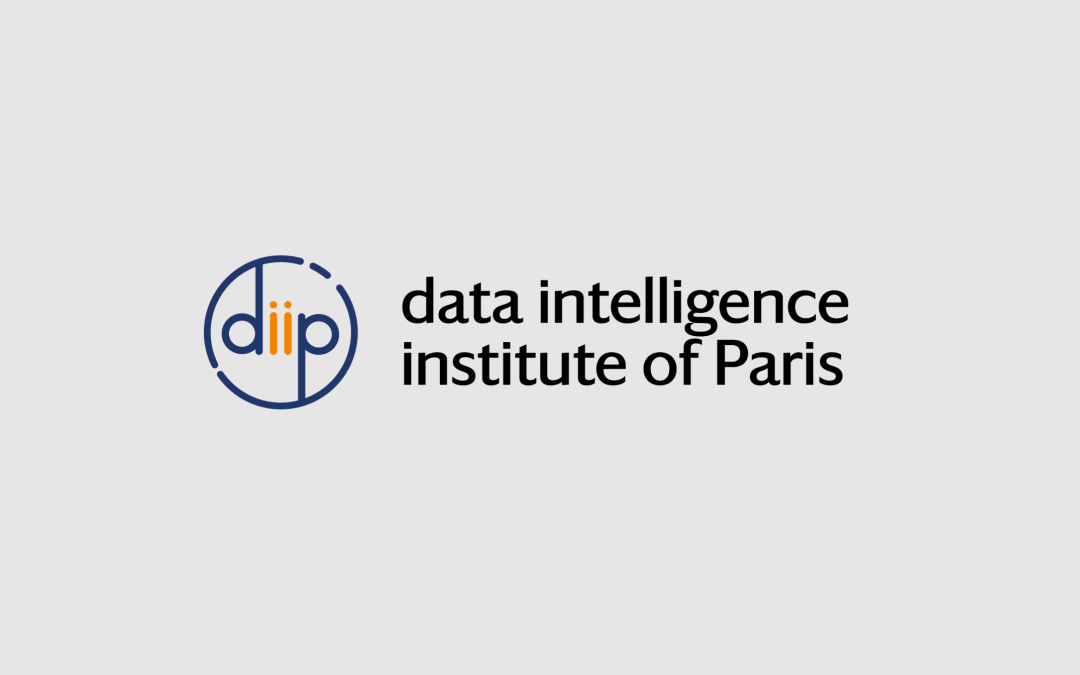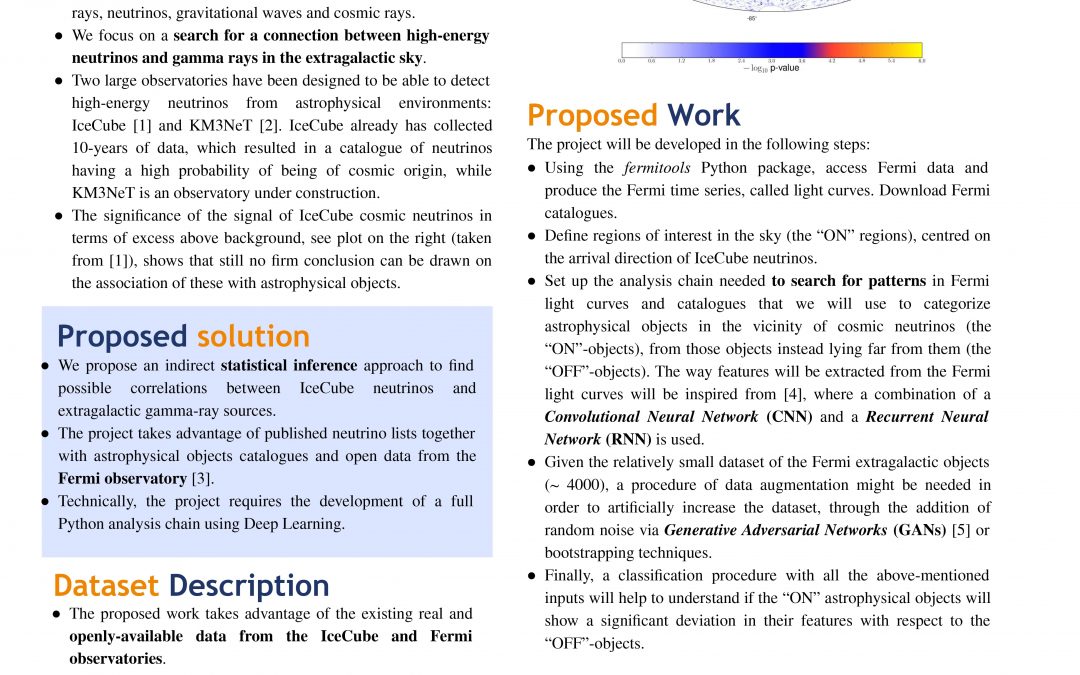2022
Strategic Projects
@Physics & Astronomy
+Biology
+Earth Sciences/Geosciences
#Neutrinos
#Machine Learning
#Bioluminescence
#Graph Neural Networks
Project Summary
Neutrinos are fundamental particles that are produced in a multitude of nuclear processes and permeate our universe. Despite their abundance, neutrinos are extremely difficult to observe due to their very weak interaction with matter. Neutrinos produced in the atmosphere will typically traverse the whole Earth as if it wasn’t even there. In order to detect such elusive particles, the KM3neT experiment is building gigantic arrays of photosensors submerged in the deepest regions of the Mediterranean, where few other particles can reach and the clear seawater provides a huge natural target for neutrino interactions.
In the rare occasions when these neutrinos interact inside or near the KM3NeT detectors, multiple charged particles are created which in turn produce light as they travel through the seawater. By observing the pattern that these light signals leave in the detector, KM3NeT is able to reconstruct basic properties of the neutrino interactions such as energy, momentum, and flavour. Currently, these tasks are performed mostly by hand-crafted algorithms based on fundamental physics knowledge. The goal of this project is to enhance the capabilities of KM3NeT by exploring cutting-edge deep learning techniques to replace traditional reconstruction methods, pushing the boundaries of what is possible and enabling new areas of research with the KM3NeT infrastructure.
Joao Coehlo

Projects in the same discipline

Deeply Learning from Neutrino Interactions with the KM3NeT neutrino telescope
2022 PhD/ DIAI Projects @AstronomyParticle physics and graph neural networks Santiago PENA MARTINEZ Project Summary A new generation of neutrino experiments is in the horizon looking to explore many of the open questions on neutrino properties and searching for...

Learning the magneto-ionic side of the turbulence in the interstellar medium in radio-astronomy
2022 PhD/DIAI Projects @AstrophysiqueJack Berat(LPENS, UPC)Project Summary The phase transition from warm neutral medium to cold neutral medium in the interstellar medium (ISM) is affected by the magnetic field. The polarization of the synchrotron emission is one of...

Machine Learning for Photometric redshift estimation of LSST galaxies
2023Masters Projects@Physics & Astronomy +Computer Science+Mathematics/Statistics #machine learning#convolutional networks#astrophysics Project Summaryto be updated. Simona Mei Projects in the same discipline

“Search for features in astrophysical objects close to cosmic neutrinos”. An indirect approach to cosmic neutrino association with astrophysical objects
2022Masters Projects@Physics & Astronomy +Computer Science #Neutrino and Gamma-Ray Astronomy#Deep Learning#Real Data Analysis#Data Augmentation Project SummaryThe work proposed here is in the field of Astroparticle Physics, a sub-branch of Physics dealing with the...
